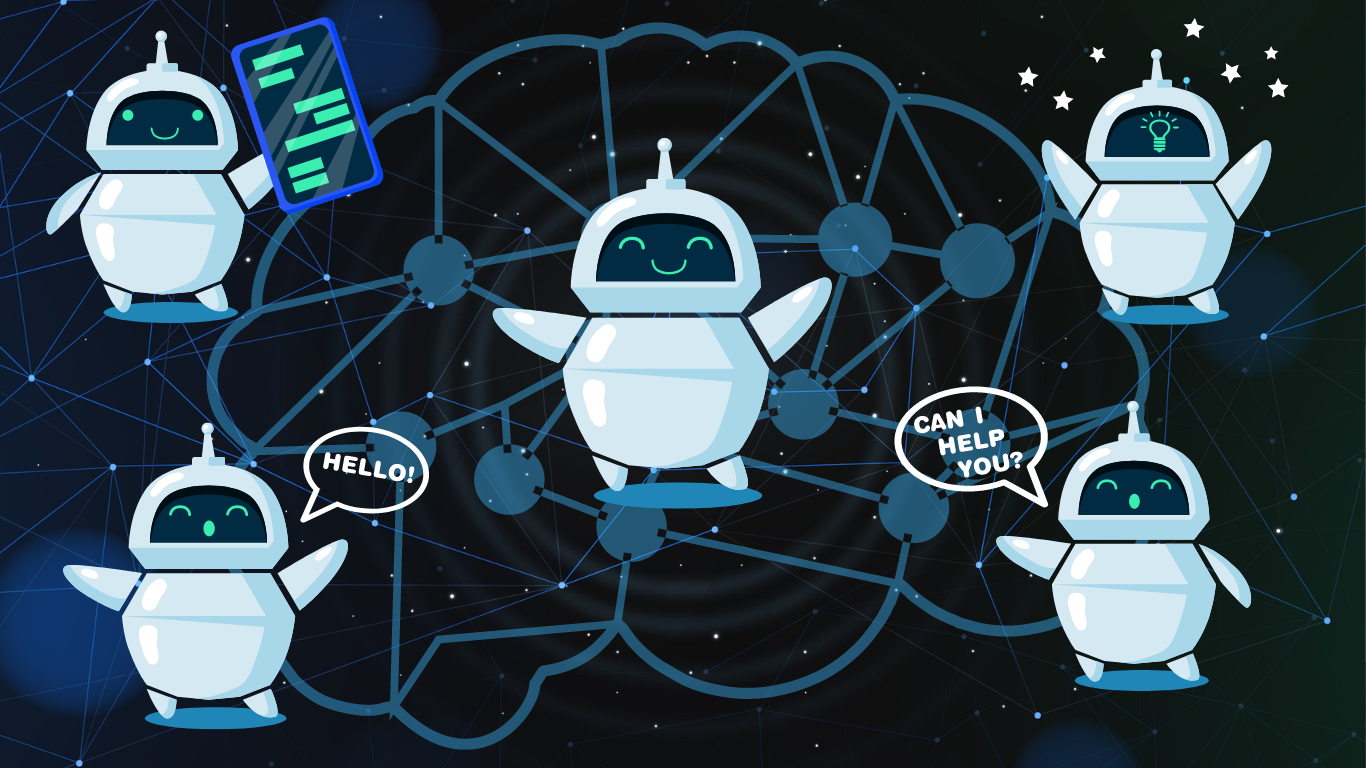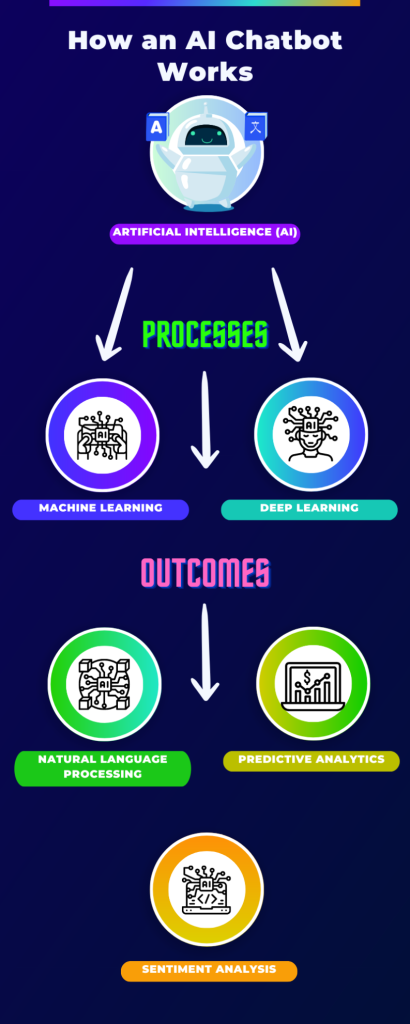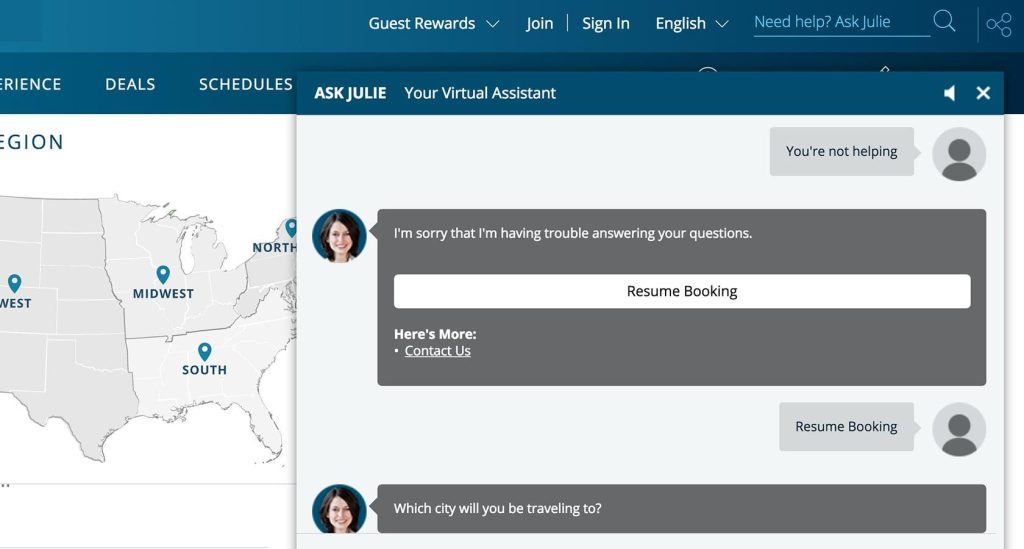Benefits and Risks of AI Chatbots in Sales and Marketing

There’s a common perception that chatbots are only for customer support, whereas using them to answer your client’s concerns is just the tip of the iceberg. With the right setup, an AI chatbot can boost your sales and marketing so much that you never miss a lead.
As technology advances, businesses are finding new and innovative ways to improve their sales and marketing strategies. One of the most recent progressions is the use of AI-powered chatbots to improve sales and marketing.
These AI bots are designed to simulate conversations with human users, providing a more interactive and engaging customer experience.
Thanks to the success of ChatGPT, now many businesses are leveraging the power of artificial intelligence to empower their ventures.
AI bots have many benefits in sales and marketing, but there are some risks to be considered too. In this blog, we will talk about the possible advantages and risks of utilizing AI chatbots for marketing and sales purposes.
What is a chatbot?
A chatbot is a computer software that simulates human communication in a textual or spoken format. It is software often embedded in web pages or other digital applications to answer user questions without needing human agents.
There are three types of chatbots:
- Rule-based chatbot
- Hybrid chatbot
- AI chatbot

In this blog, we will be referring to AI Chatbots.
What is an AI chatbot?
An AI chatbot is a conversational bot that uses artificial intelligence techniques, such as natural language processing and machine learning to simulate human-like conversations with users through text or voice-based interfaces.
AI chatbots are designed to understand and interpret user queries and automate responses to them. They are programmed to continuously improve their performance through data analysis and feedback from users. By partnering with a chatbot development company in Dubai, businesses can enhance their customer service, streamline their operations, and deliver a more personalized user experience.
How are AI chatbots different?
AI chatbots are different, in fact even better than normal chatbots as they are powered by artificial intelligence technologies such as Machine Learning (ML), Natural Language Processing (NLP), and Deep learning (DL).

Traditional chatbots are rule-based and follow a pre-programmed set of rules and responses to provide answers to user queries. In contrast, AI chatbots are able to understand natural language input from users, analyze it, and generate appropriate responses based on the context and intent of the user’s message.
AI chatbots can also learn from previous interactions with users to improve their responses over time through machine learning algorithms. This makes them more efficient and effective in providing accurate and relevant answers to users’ queries.
In addition, AI bots can take care of many complex tasks such as conducting transactions, scheduling appointments, and providing personalized recommendations, whereas traditional chatbots are only limited to answering basic questions.
How can AI chatbots be utilized in Sales and Marketing?
Chatbots are an excellent tool to engage and retain customers. When combined with Artificial Intelligence they can provide timely and personalized responses to customers efficiently at a large scale. Here are some ways to use AI chatbots for sales and marketing:
Lead Generation:
They can assist in qualifying leads by asking questions and collecting relevant information about the customer’s needs and preferences. Plus, they can propose personalized recommendations based on the customer’s responses.
Customer Support:
Chatbots can provide immediate assistance to customers, answering frequently asked questions and resolving issues in real-time. This can improve customer satisfaction and loyalty, which ultimately increases the chances of sales and purchases.
Sales Support:
Based on customer’s interests and previous purchases chatbots can offer personalized product recommendations.
Moreover, they can interest clients with useful information regarding products and services such as pricing, availability, and promotions.
Marketing Campaigns:
AI chatbots can help promote marketing campaigns by delivering personalized messages to customers based on their preferences and behavior. This results in increased engagement and conversion rates.
Data Analysis:
Chatbots aid in collecting and analyzing data through customer interactions, taking notes in the process, which allows sales and marketing teams to identify trends and opportunities for improvement.
What are the benefits of utilizing AI chatbots in Sales and Marketing?
The use of AI chatbots in sales and marketing can provide businesses with a lot of leverage, such as improved efficiency, scalability, and improved customer retention.

Chatbots can handle large volumes of inquiries simultaneously, freeing up human staff to pay attention to more important and complex tasks, resulting in improved performance and cost saving for organizations.
Here are some of the ways they can improve reach and boost sales:
24/7 Availability:
AI chatbots can be programmed to respond to customer inquiries and provide assistance 24/7, this is important because over 50% of customers expect a business to be open 24/7.
AI chatbots ensure that customers receive immediate, intelligent, and personalized attention without the need for human intervention.
Adaptable to Perform Multiple Tasks:
AI chatbots can handle multiple inquiries simultaneously, which can help reduce response times and increase efficiency. They are also efficient in retaining clients even after the purchase.
Perfect Channel for Customer Engagement:
Studies suggest that 65% of clients prefer messaging when contacting a business. This makes chatbots a perfect channel for marketing and making sales.
Improved Customer Experience:
AI chatbots can provide personalized recommendations and solutions based on customer preferences and past behavior, enhancing the overall customer experience and increasing customer satisfaction.
Cost Savings:
AI chatbots can significantly reduce the cost of customer service by automating tasks that would otherwise require human intervention, such as answering simple queries, routing calls to the appropriate department, and resolving issues.
Using Conversational Data to Gain Insights:
AI chatbots can collect valuable customer data that can be used to improve marketing strategies, such as customer preferences, behavior, and feedback.
This process is called Chatbot Analytics, through which we can gain valuable insights that can predict demands and preferences in the future.
Optimizing Repetitive Tasks and Liberating Creativity:
In any organization, the majority of tasks are routine and repetitive. This monotonous work is what chatbots specialize in.
They’re super focused and don’t get distracted easily. AI chatbots can streamline and standardize processes and enable efficiencies.
What are the possible Risks of AI chatbots in Sales and Marketing?
Although the use of AI chatbots in sales and marketing can bring benefits, there are also several risks to consider. These risks include the lack of personalization, technical issues, security concerns, and limited understanding.
Chatbots may lack the human touch that many customers value, leading to a less engaging and less effective customer experience.

Furthermore, technical issues can arise that prevent chatbots from functioning properly, leading to frustration for customers and potential damage to the reputation of the business.
Lack of personalization:
While AI chatbots can provide automated responses, they may not be able to provide a personalized touch to the conversation. This can lead to customers feeling like they are just another number in the system, rather than an individual with unique needs.

Misinterpretation of customer queries:
AI chatbots may struggle to understand the nuances of human language and may misinterpret customer queries. This can result in incorrect responses, frustrating customers, and leading to poor customer experiences.

Data privacy concerns:
AI chatbots are typically designed to collect customer data to improve their responses over time. However, this raise concerns around data privacy and security. Customers may not want their personal information collected and stored by a chatbot.
Technical issues:
AI chatbots are reliant on technology, and technical issues can lead to downtime and interruptions in service. This can lead to lost sales opportunities and potentially damage the reputation of the business.

Lack of emotional intelligence:
AI chatbots are not capable of understanding and responding to human emotions in the same way that a human customer service representative would. This can lead to customers feeling ignored or not understood.
Security Concerns:
Chatbots collect and store customer information, which can be a potential security concern if the data is not protected well. So, businesses need to make sure that the chatbot systems are well aligned with data protection regulations.
Final thoughts:
Overall, while AI chatbots can provide exceptional benefits in sales and marketing, businesses must be aware of the potential risks too. So that they can take appropriate steps to mitigate them.
This may include investing more in research and development of advanced AI technology, or providing human support when necessary.



